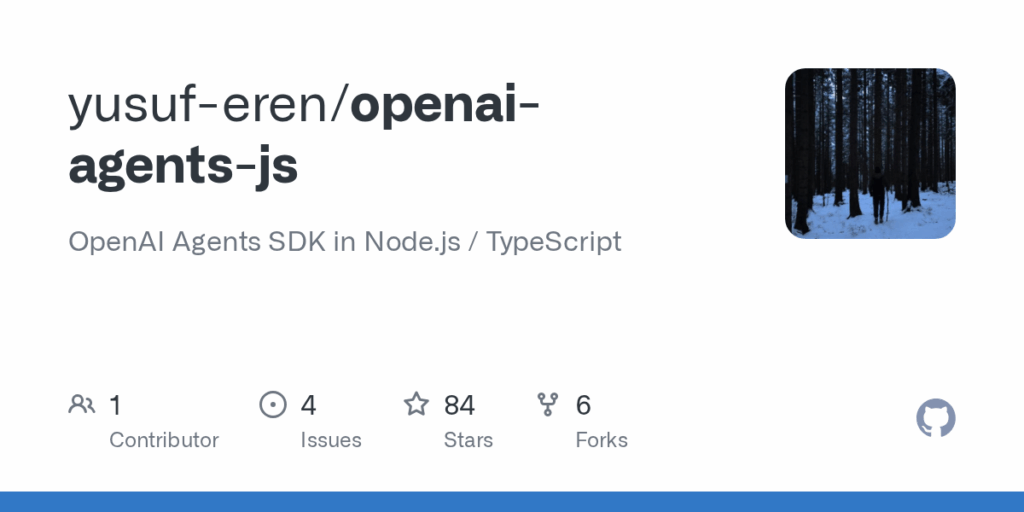openai agents js
Basic Information
This repository is a TypeScript/JavaScript port of the OpenAI Agents SDK intended for Node.js environments. It provides a feature-parity implementation of the official Python agents SDK so developers can build multi-agent LLM workflows using familiar API design and patterns in TypeScript. The library is provider-agnostic and documented to work with OpenAI Responses and Chat Completions APIs as well as over 100 other LLMs. Core concepts implemented include configurable Agents, Handoffs for transferring control between agents, Guardrails for input and output validation, Tracing for run inspection, and support for tools and function calls. The README includes examples such as a hello world agent, handoff workflows, function tools for calling code, and Model Context Protocol integrations like a filesystem MCP server. Note that the project is archived and marked deprecated by the author.








